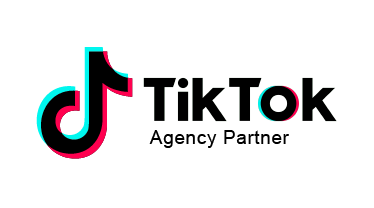5 Tips For Choosing The Right Keywords
Keyword research and SEO (Search Engine Optimization) go hand-in-hand! For your website to be discoverable on the Search Engine Result Page (SERP), choosing the right keyword and ultimately the right keyword research tool is a very crucial process. You may wonder, why is keyword research essential? Keyword research for SEO provides you answers to questions consumers are asking about your business/product. The topic of how exactly to do keyword research doesn’t necessarily need to be complicated. Thus, we’re here to provide you with five tips for choosing the right keywords and the necessary keyword research tool for your content. You’d be surprised how much keyword research helps increase your organic search volume as well.
Table of Contents
1. Understand the search behaviour of your clients
To ensure that your website can reach your potential customers on the SERP, you simply have to put yourself in their shoes and think from their perspectives then start with keyword research for SEO. This can be done with a simple Google Search! You have to understand and come up with keyword ideas for what your potential customers search for when they want to look for your products. For example, imagine them thinking “If I were to look for this particular product, what keywords would I search for?”.
Another example would be, let’s say if you are selling coffee machines online, you wouldn’t want to target keywords like “coffee shop” or “coffee mug” because simply, you are NOT selling these products. Targeting the word “coffee” is not advisable as well considering how generic this is and users making this relevant keyword research may be trying to find for a coffee shot, types of coffee, benefits of coffee and so on. Instead, try targeting specific keywords for your users.
2. Get to know different types of keywords
By getting to know different types of keywords, you will get a better idea of what keyword research to target for your website, increase search volume from every search engine and how to choose the right and relevant keywords. The types of keywords include:
- Transactional keywords. These are keywords that potential consumers use to directly find the product or service they’re about to buy. Eg. Buy, discount, cheapest etc.
- Informational keywords. When a user decides to find more information about a product, they use informational keywords.
- Navigational keywords. These keywords are types of long-tail keywords that search engines themselves determine if they’re a part of a query.
- Location-based keywords. Your business could be based in a particular location and these are when location-based keywords are utilized.
3. Utilize keyword research tools
Keyword research tools let us determine the search volumes for different keywords so we don’t target keywords that no one is searching for. Usually, these tools would suggest related keywords as well so we can get more keyword ideas from there. Some keyword research tools include Google Search Console, Google Keyword Planner, SECockpit, Keyword Sheeter and many more.
Not only are these keyword research tools helpful for your business and your search volume but they are also FREE!
4. Keyword research on the search engines
Sometimes you aren’t sure if that particular keyword would be suitable for the products or content you’re offering, so what can you do about this? Well, perform simple keyword research on search engines and look at what results will show up. By typing your query into the Google search bar, you’d obtain information about your competitors as well.
By doing this, you will get a hang of what type of content the users are expecting and their search intent when they search for the particular keyword. Not only that, but you can also take a look at the type of content your competitors are putting out that allows them to rank higher than you on the SERP while analyzing their search volume as well.
When you type your desired keywords, you would notice that a search engine has autocompleted features when you type in a search query on the search bar and you can get other keyword ideas from there as well. With this, you’d be able to gauge the level of keyword difficulty you should adhere to with your keyword research tools proceeding.

5. Hand your SEO campaign to the professionals
Similar to letting a contractor handle the renovation of your house, there are agencies you can employ to handle your campaigns. If you ever find yourself not having enough time to manage your SEO campaign or your lack of technological prowess stands in the way of your SEO literacy, just step back and let an SEO agency handle the campaign for you. We understand how SEO keyword research can get on your nerves!
These agencies will assign experienced SEO professionals with our SEO tools to handle your campaign from A to Z, including keyword research with top-notch keyword tools, writing meta tags, creating content and even increasing your monthly search volume. Whatever is needed to make your campaign a success. You don’t need to worry about your website’s SEO performance in your blog post and ad copies and instead can shift your focus to other important things.
As your business grows in the 21st century, every business owner should realize the importance of an SEO campaign and employ the right agency to guide you in proper keyword research. We hope the tips above will help you better understand the keyword research process for beginners and how to choose the right keywords for SEO. Choosing the right keywords will help bring more relevant organic traffic to your website, increase your visibility on the SERP and improve your conversion rate. Simply observe how search volume data grows tenfold!
















Join the discussion - 0 Comment